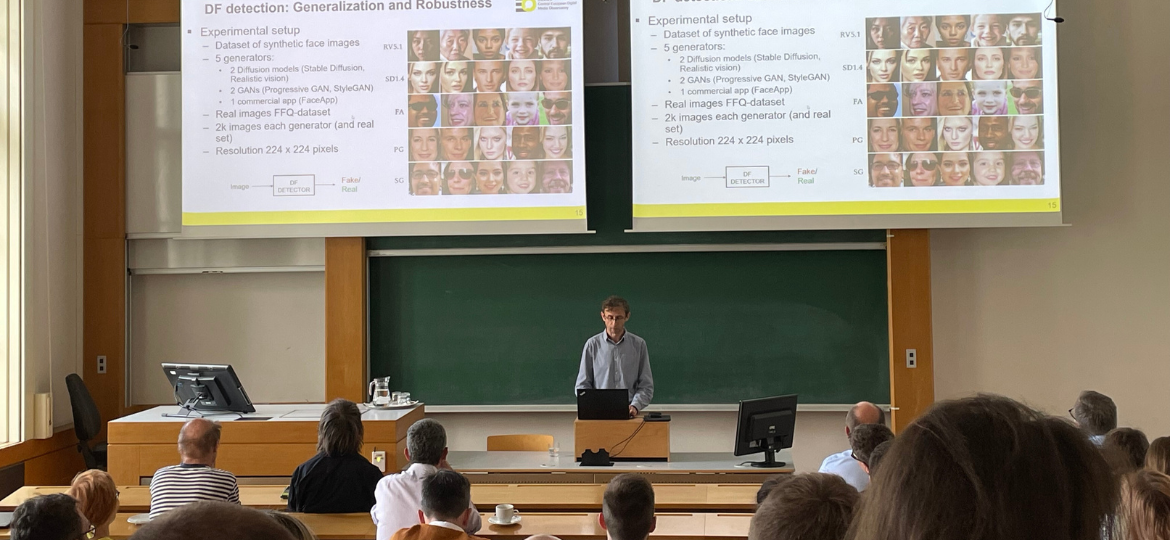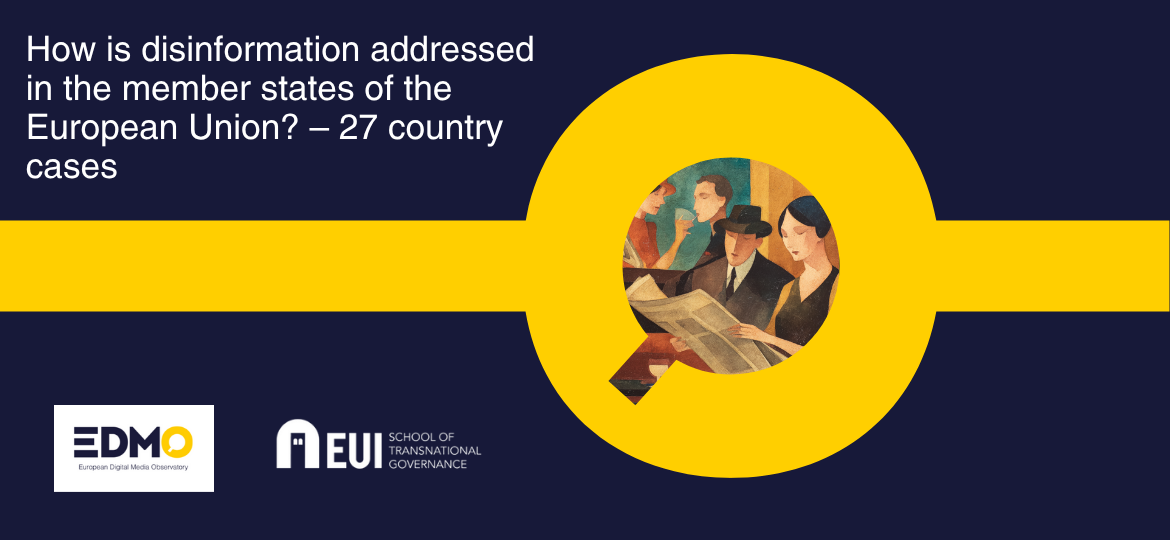About CEDMO
The Central European Digital Media Observatory (CEDMO), as an independent non-partisan multidisciplinary hub, aims to identify, research and prioritise the most critical sources and causes of information disorders in Central Europe (mainly the Czech Republic, Slovakia and Poland). This international consortium was created to propose a set of short and longer-term actions, as well as recommendations to help civil society, public institutions and the private sector respond to the declining trust in key institutions and help society to resist the effect of increasing exposure to mis- and disinformation.
By interacting and coordinating with European Digital Media Observatory (EDMO) and other regional EDMO hubs in EU, CEDMO will contribute to curbing threats posed by information disorders, including disenchantment with the democratic processes, and discord in civil society in Europe, and to building community and nation-wide resilience while protecting information ecosystems.
About CEDMO
The Central European Digital Media Observatory (CEDMO), as an independent non-partisan multidisciplinary hub, aims to identify, research and prioritise the most critical sources and causes of information disorders in Central Europe (mainly the Czech Republic, Slovakia and Poland). This international consortium was created to propose a set of short and longer-term actions, as well as recommendations to help civil society, public institutions and the private sector respond to the declining trust in key institutions and help society to resist the effect of increasing exposure to mis- and disinformation.
Our Partners
About CEDMO
The Central European Digital Media Observatory (CEDMO), as an independent non-partisan multidisciplinary hub, aims to identify, research and prioritise the most critical sources and causes of information disorders in Central Europe (mainly the Czech Republic, Slovakia and Poland). This international consortium was created to propose a set of short and longer-term actions, as well as recommendations to help civil society, public institutions and the private sector respond to the declining trust in key institutions and help society to resist the effect of increasing exposure to mis- and disinformation.
Our Partners
The 30-second clip — showing Sunak lighting small lamps on a doorstep — was shared on Twitter on October 26.
One Facebook post shared October 6, 2022 includes a series of images that show a journalist wearing a helmet and a bulletproof vest lying on the ground while speaking to a camera. In the background, a woman stands up and watches him.
The photos have been shared more than 600 times after they were posted here on September 16, 2022.
“Tornado hurricane patents… Do you get it yet? … The weather is weaponized and controlled,” says text over the video, which shows pages from the two patent filings.
One Facebook post shared October 6, 2022 includes a series of images that show a journalist wearing a helmet and a bulletproof vest lying on the ground while speaking to a camera. In the background, a woman stands up and watches him.
The picture, which was shared more than 3,200 times and “liked” over 10,000 times, was posted on Twitter here on September 10, 2022.





























